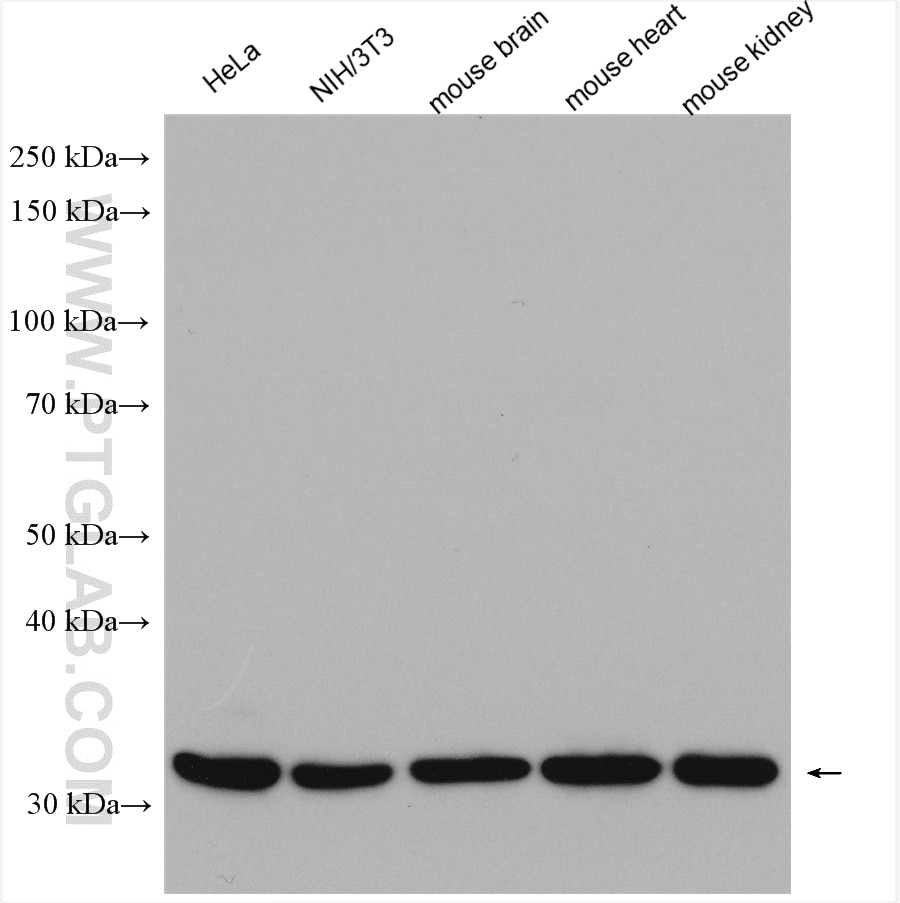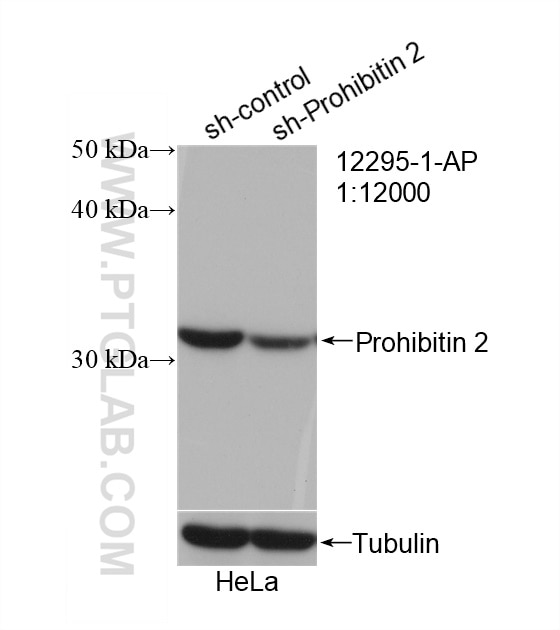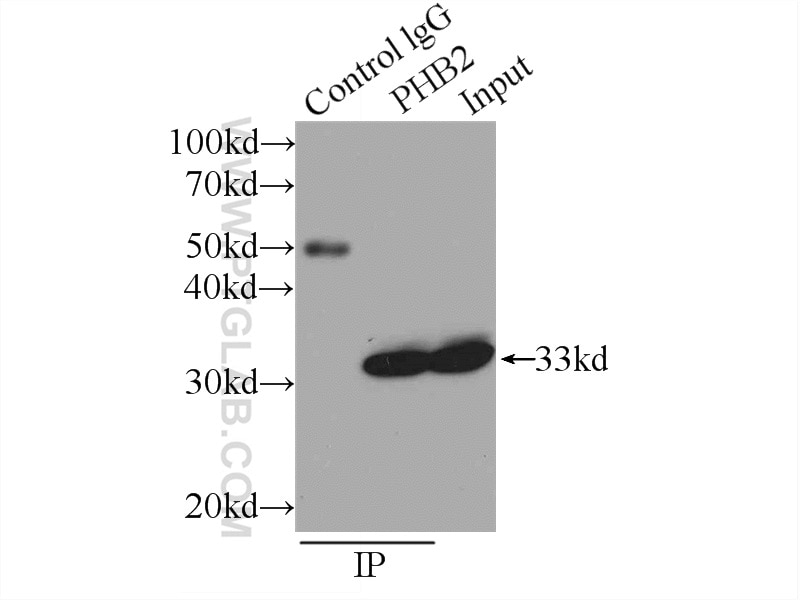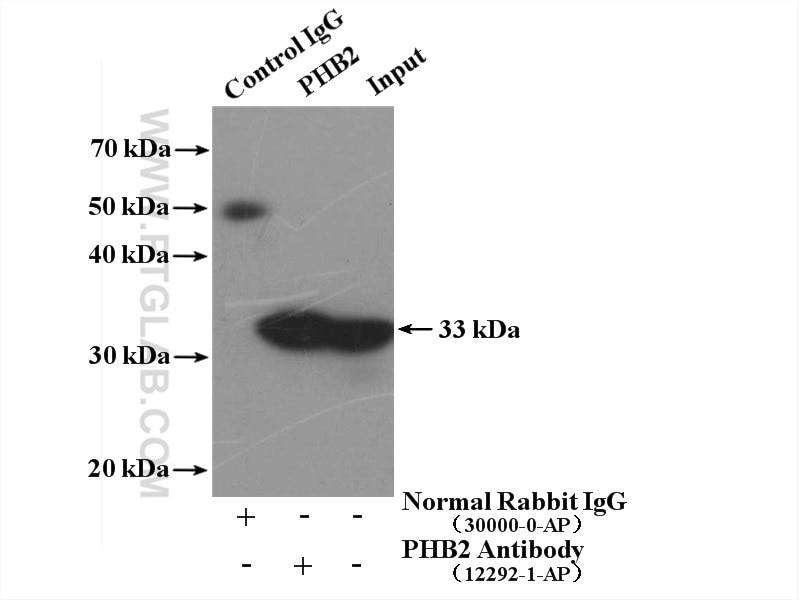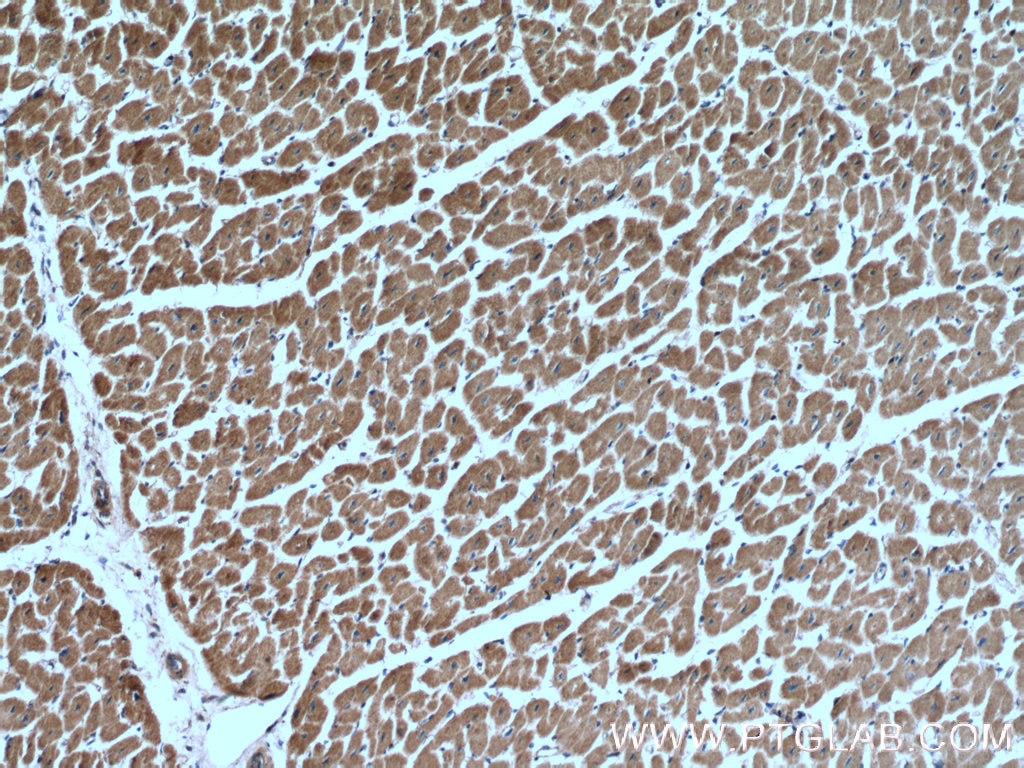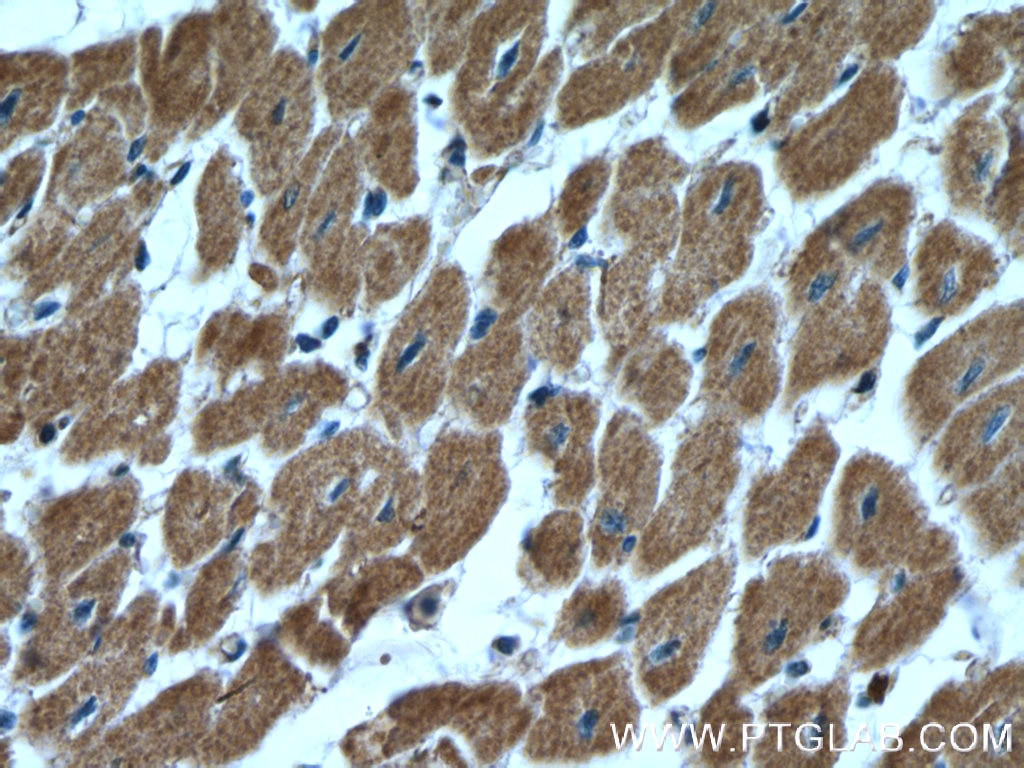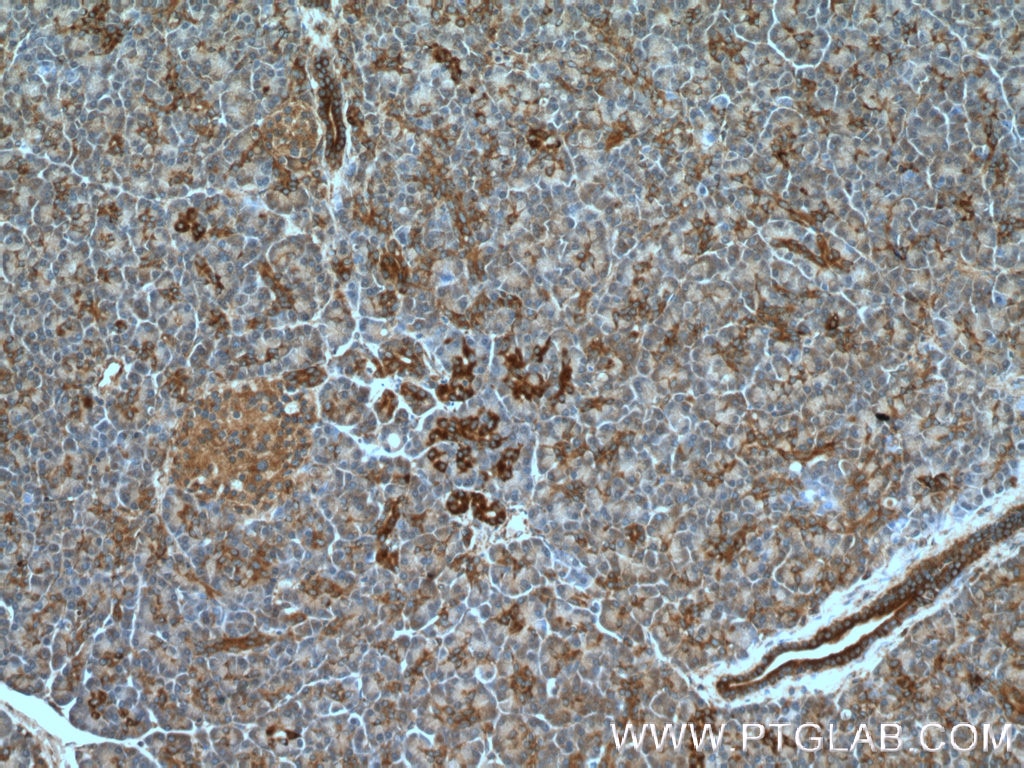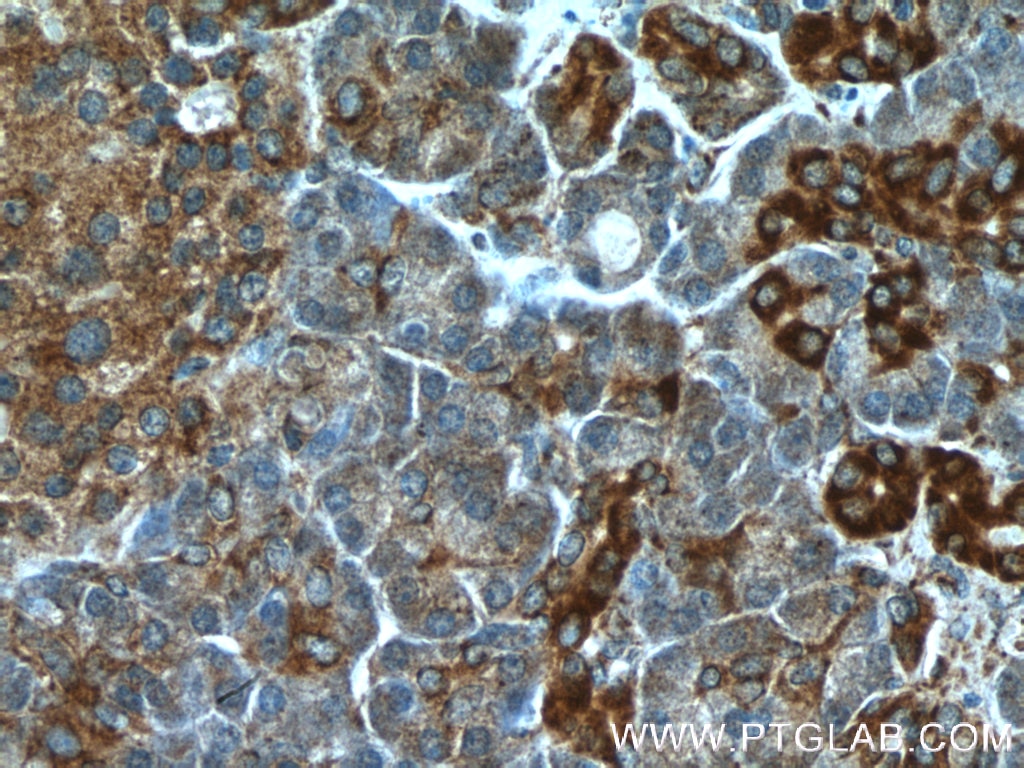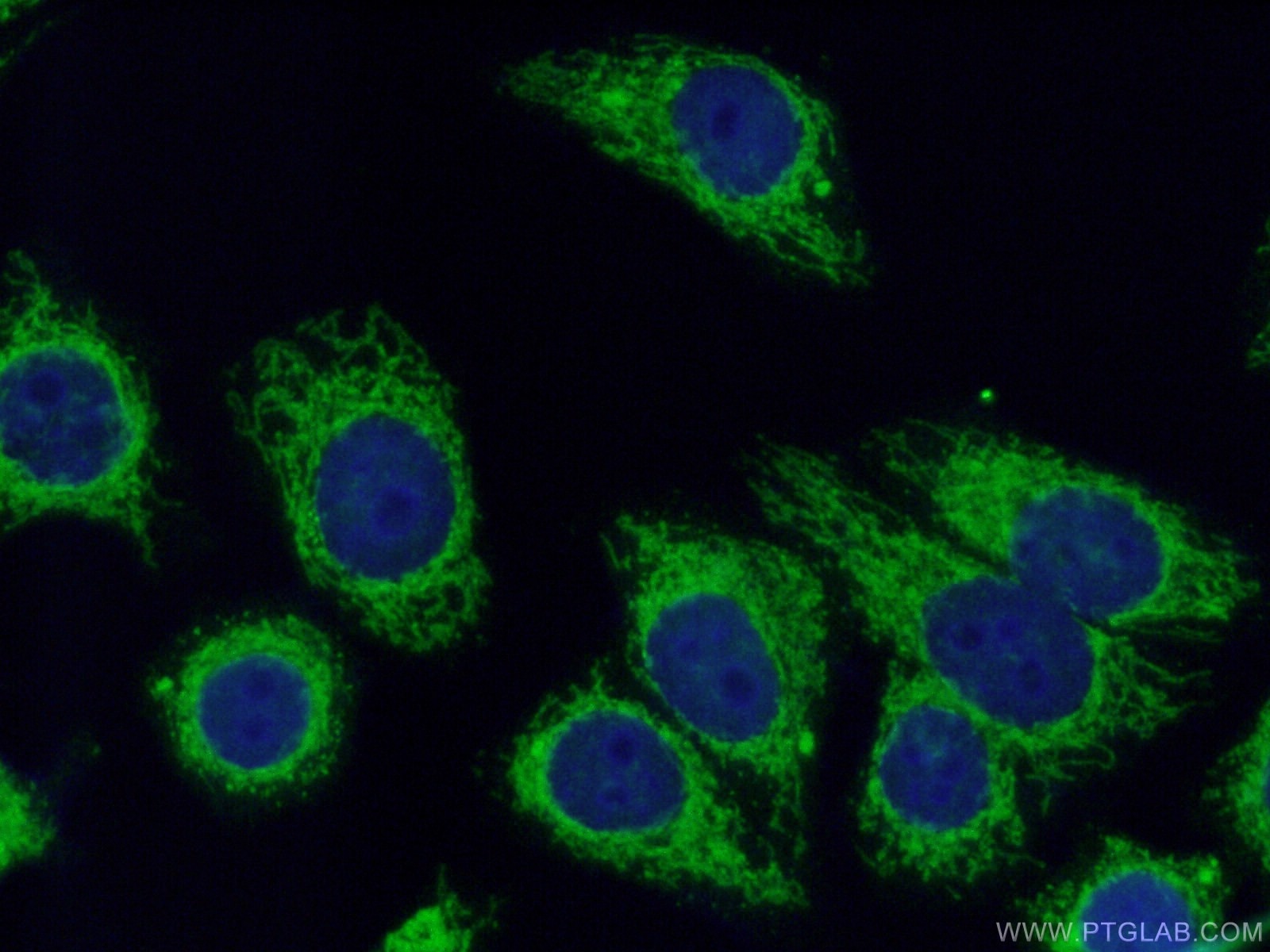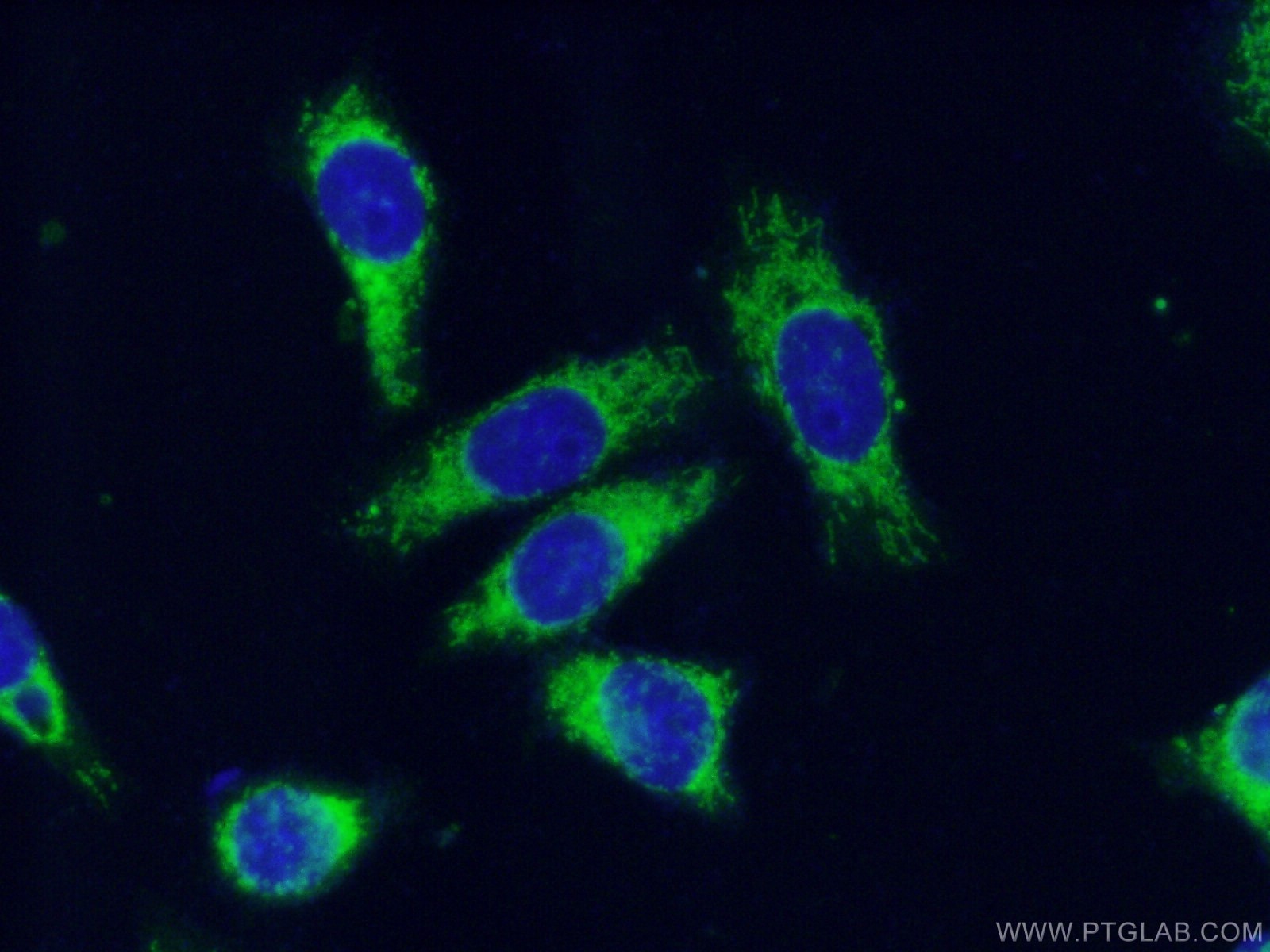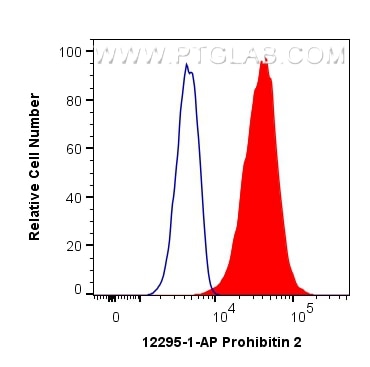- Featured Product
- KD/KO Validated
Prohibitin 2 Polyclonal antibody
Prohibitin 2 Polyclonal Antibody for FC, IF, IHC, IP, WB, ELISA
Host / Isotype
Rabbit / IgG
Reactivity
human, mouse and More (2)
Applications
WB, IP, IHC, IF, FC, Electrochemical Immunosensor, CoIP, ELISA
Conjugate
Unconjugated
Cat no : 12295-1-AP
Synonyms
Validation Data Gallery
Tested Applications
| Positive WB detected in | HeLa cells |
| Positive IP detected in | HeLa cells, mouse brain tissue |
| Positive IHC detected in | human heart tissue, human pancreas tissue Note: suggested antigen retrieval with TE buffer pH 9.0; (*) Alternatively, antigen retrieval may be performed with citrate buffer pH 6.0 |
| Positive IF detected in | HepG2 cells |
| Positive FC detected in | HeLa cells |
Recommended dilution
| Application | Dilution |
|---|---|
| Western Blot (WB) | WB : 1:2000-1:16000 |
| Immunoprecipitation (IP) | IP : 0.5-4.0 ug for 1.0-3.0 mg of total protein lysate |
| Immunohistochemistry (IHC) | IHC : 1:50-1:500 |
| Immunofluorescence (IF) | IF : 1:50-1:500 |
| Flow Cytometry (FC) | FC : 0.40 ug per 10^6 cells in a 100 µl suspension |
| It is recommended that this reagent should be titrated in each testing system to obtain optimal results. | |
| Sample-dependent, Check data in validation data gallery. | |
Published Applications
| KD/KO | See 8 publications below |
| WB | See 36 publications below |
| IHC | See 3 publications below |
| IF | See 8 publications below |
| IP | See 2 publications below |
| CoIP | See 2 publications below |
Product Information
12295-1-AP targets Prohibitin 2 in WB, IP, IHC, IF, FC, Electrochemical Immunosensor, CoIP, ELISA applications and shows reactivity with human, mouse samples.
| Tested Reactivity | human, mouse |
| Cited Reactivity | human, mouse, rat, rice |
| Host / Isotype | Rabbit / IgG |
| Class | Polyclonal |
| Type | Antibody |
| Immunogen | Prohibitin 2 fusion protein Ag2977 |
| Full Name | prohibitin 2 |
| Calculated Molecular Weight | 299 aa, 33 kDa |
| Observed Molecular Weight | 33 kDa |
| GenBank Accession Number | BC014766 |
| Gene Symbol | PHB2 |
| Gene ID (NCBI) | 11331 |
| RRID | AB_2164779 |
| Conjugate | Unconjugated |
| Form | Liquid |
| Purification Method | Antigen affinity purification |
| Storage Buffer | PBS with 0.02% sodium azide and 50% glycerol pH 7.3. |
| Storage Conditions | Store at -20°C. Stable for one year after shipment. Aliquoting is unnecessary for -20oC storage. 20ul sizes contain 0.1% BSA. |
Background Information
PHB2, also named as BAP, REA, D-prohibitin, BAP37 and Prohibitin-2, belongs to the prohibitin family. It acts as a mediator of transcriptional repression by nuclear hormone receptors via recruitment of histone deacetylases. PHB2 functions as an estrogen receptor (ER)-selective coregulator that potentiates the inhibitory activities of antiestrogens and represses the activity of estrogens. It competes with NCOA1 for modulation of ER transcriptional activity. PHB2 is probably involved in regulating mitochondrial respiration activity and in aging.(PMID: 10359819)
Protocols
| Product Specific Protocols | |
|---|---|
| WB protocol for Prohibitin 2 antibody 12295-1-AP | Download protocol |
| IHC protocol for Prohibitin 2 antibody 12295-1-AP | Download protocol |
| IF protocol for Prohibitin 2 antibody 12295-1-AP | Download protocol |
| IP protocol for Prohibitin 2 antibody 12295-1-AP | Download protocol |
| FC protocol for Prohibitin 2 antibody 12295-1-AP | Download protocol |
| Standard Protocols | |
|---|---|
| Click here to view our Standard Protocols |
Publications
| Species | Application | Title |
|---|---|---|
Mol Cell Identification of TMEM126A as OXA1L-interacting protein reveals cotranslational quality control in mitochondria | ||
J Am Soc Nephrol Bif-1 Interacts with Prohibitin-2 to Regulate Mitochondrial Inner Membrane during Cell Stress and Apoptosis. | ||
Neuron Oligodendrocytes enhance axonal energy metabolism by deacetylation of mitochondrial proteins through transcellular delivery of SIRT2. | ||
Nat Commun Spatial mapping of juxtacrine axo-glial interactions identifies novel molecules in peripheral myelination. | ||
Redox Biol PHB2 ameliorates Doxorubicin-induced cardiomyopathy through interaction with NDUFV2 and restoration of mitochondrial complex I function | ||
J Exp Clin Cancer Res PHB2 promotes SHIP2 ubiquitination via the E3 ligase NEDD4 to regulate AKT signaling in gastric cancer |
